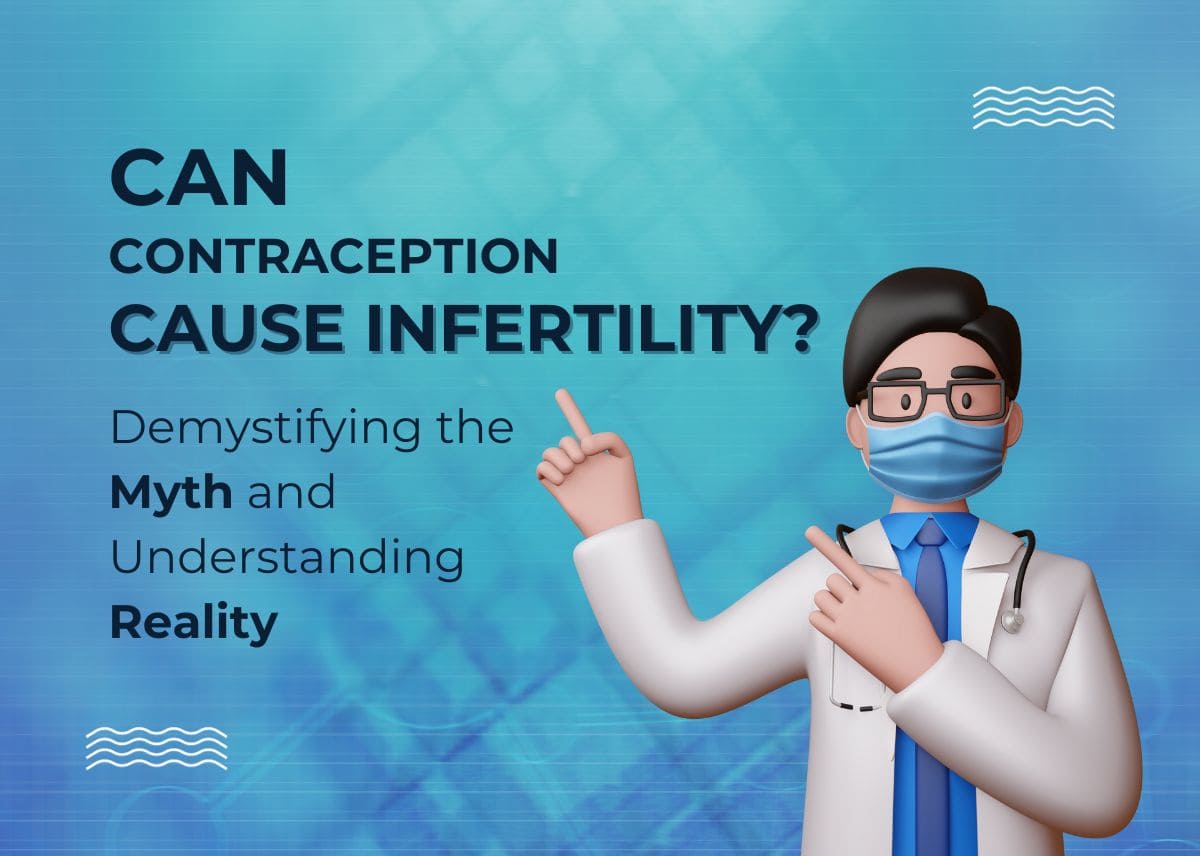For women planning their families, navigating the world of contraception often brings up a common concern: Can using birth control methods hinder future fertility? The answer, thankfully, is not always clear-cut, and requires a deeper understanding of different contraception types and their influence on your reproductive system.
Table of Contents
Demystifying the Myth
The fear of contraception leading to infertility is likely fueled by several factors. Firstly, some methods, like the contraceptive pill, temporarily regulate hormones to prevent ovulation. This cessation of egg production during active use might lead to misconceptions about permanent damage. Additionally, anecdotal accounts or outdated information can perpetuate the myth, creating unnecessary anxiety.
Breaking it Down: Types of Contraception and their Relationship with Fertility:
Hormonal Methods
- Oral Contraceptives: The most commonly used form, the pill temporarily suppresses ovulation and thickens cervical mucus, preventing sperm from reaching the egg. Studies have consistently shown no long-term impact on fertility after stopping the pill. Your natural hormonal cycle usually resumes within a few months, restoring normal ovulation and conception potential.
- Patches and Rings: These methods work similarly to the pill, delivering hormones through transdermal absorption. Like the pill, they have no adverse effect on future fertility once discontinued.
- Implants and Injections: These long-acting methods release progestin to prevent ovulation and thicken cervical mucus. Fertility return may take slightly longer after stopping them, typically ranging from several weeks to a year. However, no permanent damage occurs, and your ability to conceive will eventually return.
Non-Hormonal Methods
- Intrauterine Devices (IUDs): These small, T-shaped devices inserted into the uterus create a hostile environment for sperm, while some also release progestin for added protection. While IUDs can sometimes delay return of regular periods after removal, they do not affect your underlying fertility.
- Barrier Methods: Condoms, diaphragms, and cervical caps physically block sperm from entering the cervix. These methods have no impact on your cycle or future fertility whatsoever.
Important Considerations
While most contraception methods do not cause infertility, it’s essential to remember individual experiences can vary. Pre-existing fertility issues, underlying medical conditions, or age-related decline in ovarian function can influence your chances of conception, regardless of contraception use. If you have concerns about your specific situation, consult a healthcare professional for personalized advice.
Beyond the Physical
The emotional impact of unwanted pregnancy can be significant. Contraception empowers women to take control of their reproductive health, leading to improved mental well-being and better family planning. Choosing a suitable method allows for responsible sexual health practices and reduces stress over unplanned pregnancies.
Disclaimer
This article provides general information and should not be construed as medical advice. Please consult a qualified healthcare provider for personalized guidance on contraception and fertility concerns. Open communication with your doctor ensures you make informed decisions that align with your health needs and family planning goals.
Also Read:







